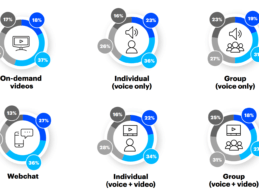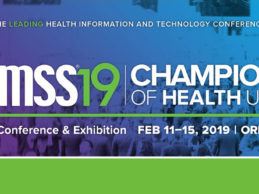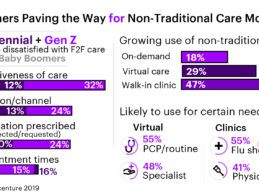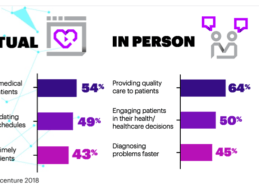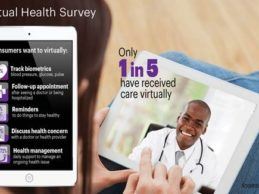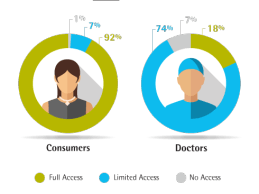What You Should Know:
- A new Accenture report called “Breakthrough Behavioral
Health Access: Think Virtual” finds that the use of virtual behavioral health could
expand care for more than 53 million Americans facing these conditions.
- Demand for behavioral health specialists significantly outweighs current availability; in addition to severe wait times of 25 days for first clinical appointments, we are projected to have a shortage of 250,000 behavioral health and mental health
Read More
Accenture Survey
HIMSS19 Day 2 Announcements & Summary
Accenture: Millenials & Gen Z Are Shifting to Virtual, Retail, Clinic, Digital CareMillennial and Gen Z consumers in the U.S. are rapidly adopting non-traditional care models, such as retail clinics, virtual and digital services, according to results of an Accenture survey of 2,000 consumers.Key findings of the survey study include:- When considering traditional in-person care, millennials (ages 22 to 38 in 2019) were two to three times more likely than baby boomers (ages 55 to 73) to be
Read More
Accenture Survey: Millennials and Gen Z Embracing Virtual Care Models
Millennial and Gen Z consumers in the U.S. are rapidly adopting non-traditional care models, such as retail clinics, virtual and digital health services, according to results of a newly released Accenture survey. The survey reveals healthcare consumers today are changing, and their expectations for convenience, affordability, and quality are redefining how they engage at each stage of care. Survey BackgroundAccenture surveyed 2,338 U.S. healthcare consumers (ages 18+) between November and
Read More
Accenture: 61% of Consumers Have Used Virtual Health Assistants
Consumers are increasingly using a variety of digital self-service tools for managing their health, according to results of a survey from Accenture 2018 Consumer Survey on Digital Health released this week at HIMSS18.The survey of 2,301 U.S. consumers reveals that consumers are becoming more accepting of machines — ranging from artificial intelligence (AI), to virtual clinicians and home-based diagnostics — having a significantly greater role in their overall medical care. For example, one in
Read More
Accenture: 78% of Consumers Are Interested in Receiving Virtual Healthcare Services
More than three-quarters (78 percent) of consumers say they’d be interested in receiving virtual healthcare services, but only one in five (21 percent) have had the opportunity to receive services in this way, according to a new survey from Accenture. The Accenture survey of 1,501 U.S. consumers reveals that growing consumer demand for virtual healthcare services is putting increasing pressure on providers and payers to expand delivery options for on-demand health services. The research
Read More
Accenture: Only 18% of Doctors Believe Patients Should Have Full EHR Access
Only 18 percent of doctors believe patients should have full access to their EHRs, dropping significantly from 31 percent in 2014, according to the Accenture 2016 Consumer Survey on Patient Engagement. Meanwhile, 92 percent of consumers believe they should should have full access to their records has increased over the past two years. The survey reveal a growing divide between U.S. consumers and doctors who believe that patients should have full access to their own EHRs
Read More
Infographic: Most Patients Want to Self-Manage Healthcare Online
Accenture released a survey and infograpic last week stating that 90 percent of patients want to self-manage their healthcare leveraging technology, such as accessing medical information, refilling prescriptions and booking appointments online, but nearly half (46 percent) are unaware if their health records are available electronically. The survey is based on an online survey of 1,110 U.S. patients to determine the preferred channels of electronic health information and services. The online
Read More

